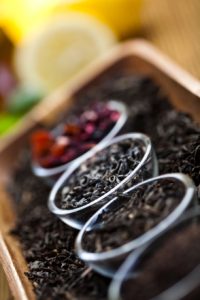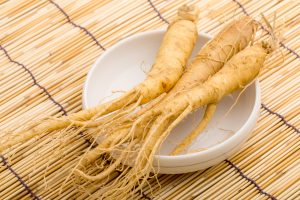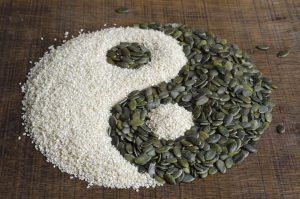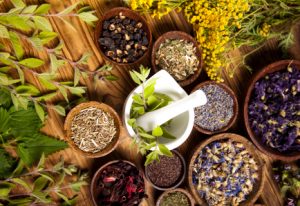In the intricate dance of life, the heart plays a leading role, tirelessly pumping life’s essence to every corner of the body. Yet, it is often only when the harmony within is disrupted—manifested through elevated blood pressure, high cholesterol levels, or the shock of a heart attack—that the critical importance of heart health is fully realized. Healing with heart, a holistic approach prioritizes not just physical health but emotional and spiritual well-being, offering a comprehensive strategy to prevent heart disease and heal the heart. This concept has gained traction as a more compassionate and effective way to manage and prevent coronary heart disease, emphasizing the need for a healthy lifestyle that includes stress management, cholesterol control, and overall physical health.

This article delves into the core of holistic nursing and its application to heart health, providing a blueprint for those seeking to improve their heart function and prevent common cardiovascular issues. Through a lens that views the individual as an interconnected whole, this holistic approach to health care is dissected, uncovering how lifestyle choices impact heart health and the empirical evidence supporting emotional wellbeing as a critical component of physical health. Readers will explore holistic interventions for heart health, from dietary adjustments to emotional support, highlighting case studies that showcase the success of a holistic nursing approach. Furthermore, this piece will outline practical steps for nurses and healthcare practitioners, touching upon the challenges and future directions in the field, aiming to equip professionals with the knowledge they need to heal the heart effectively.
Please also review AIHCP’s Holistic and Integrative Healthcare Practitioner Program for nurses. The Holistic Nursing Program is online and independent study and offers a four year certification for qualified professionals.
The Concept of Holistic Nursing
Historical Background
Holistic nursing, as a concept, has been deeply rooted in the nursing profession since its inception in the 1700s. Early nursing practices commonly incorporated natural remedies and healing therapies, utilizing a variety of medicinal herbs through compresses, poultices, and teas. These practices were well-documented in American nursing texts up to the mid-1900s, reflecting a longstanding tradition of integrating plant medicine theory into nursing education.
Florence Nightingale, often regarded as the founder of modern nursing, emphasized the critical relationship between a person’s health and their environment. She advocated for the essentials of pure air, water, and cleanliness, asserting that nature played a pivotal role in the healing process. She famously stated, “It is often thought that medicine is the curative process. It is no such thing … nature heals the wound.” This perspective underscored the belief that nursing should facilitate the natural healing processes of the body by optimizing environmental conditions.
However, the latter half of the 20th century saw a shift in nursing as technology began to overshadow human connections, transforming healthcare into a for-profit business. This change led to a diminished emphasis on the caring and healing aspects fundamental to nursing, sparking frustration among nurses who felt unable to provide holistic care. In response, the American Holistic Nurses Association was formed, revitalizing the holistic principles in nursing practice.
Core Principles
The core of holistic nursing is defined by its goal to heal the whole person, a principle officially recognized by the American Nurses Association in 2006 when it designated holistic nursing as a distinct specialty. Holistic nurses employ a variety of integrative therapies including imagery, relaxation techniques, aromatherapy, and energy therapies, which are applied across diverse settings from hospitals to private practices.
Holistic nursing is not confined to the application of conventional medical practices but includes understanding and coordinating with non-conventional health providers. This approach is crucial in managing the complexities of modern healthcare, ensuring that patients receive comprehensive care that addresses not only physical ailments but also emotional and spiritual well-being.
The practice is underpinned by several key principles:
- Respect for the patient’s subjective feelings and experiences.
- Recognition of the interconnectedness of mind, body, spirit, and environment.
- Commitment to patient autonomy and empowerment.
- Acknowledgement of each individual’s innate healing capabilities.
These principles guide holistic nurses to not only treat diseases but also to foster overall well-being, thereby enhancing the efficacy of medical treatments through a balanced approach that considers the entire spectrum of human health. Holistic nursing thus represents a shift towards a more empathetic, patient-centered approach to healthcare, where the focus extends beyond symptoms to encompass the whole person in their journey towards health and wellness.
Heart Health: An Overview

Heart disease, encompassing a range of conditions that impact the heart and blood vessels, is the leading cause of death globally. It claims approximately 17.9 million lives annually, with a significant proportion of these deaths occurring prematurely in individuals under 70 years of age. The spectrum of heart diseases includes coronary artery disease, cerebrovascular disease, rheumatic heart disease, and other conditions, many of which can lead to heart attacks and strokes.
Prevalence of Heart Disease
Cardiovascular diseases (CVDs) are alarmingly prevalent, particularly in low- and middle-income countries where over three-quarters of CVD deaths occur. These conditions are largely driven by a combination of behavioral, environmental, and physiological risk factors. Unhealthy diets, physical inactivity, tobacco use, and harmful alcohol consumption significantly elevate the risk of heart disease. Environmental factors like air pollution also play a crucial role. The effects of these risk factors may manifest as raised blood pressure, elevated blood glucose levels, increased blood lipids, and obesity, all of which are measurable in primary care settings and indicate heightened risk for severe cardiovascular events.
Common Heart Conditions
Among the various heart conditions, coronary artery disease (CAD) is the most prevalent. This condition affects the major blood vessels that supply the heart muscle, often due to the buildup of cholesterol deposits known as plaques. This buildup, known as atherosclerosis, can significantly reduce blood flow and lead to complications like heart attacks and strokes. Symptoms of CAD can vary between individuals; men are more likely to experience chest pain, while women might suffer from shortness of breath, nausea, and extreme fatigue.
Heart valve diseases, arrhythmias, and cardiomyopathy are other common heart conditions. Valve diseases can strain the heart by preventing proper blood flow, leading to symptoms such as chest pain and fainting. Arrhythmias, which involve irregular heartbeats, can manifest as palpitations, dizziness, or even syncope. Cardiomyopathy affects the heart muscle itself, potentially leading to heart failure if the heart becomes too weak to pump effectively.
Congenital heart defects, present from birth, can range from minor issues to severe malformations that affect the heart’s function. These defects may require surgical interventions or lifelong management depending on their severity.
Understanding the prevalence and types of heart conditions is crucial for developing effective prevention and treatment strategies. Addressing the underlying risk factors through lifestyle changes, medication, and in some cases, surgical interventions, can significantly improve heart health and reduce the burden of cardiovascular diseases globally.
Impact of Lifestyle on Heart Health
Lifestyle choices play a pivotal role in maintaining heart health, influencing various risk factors associated with cardiovascular diseases. Two major lifestyle components that significantly impact heart health are nutrition and physical activity.
Role of Nutrition
Nutrition is a cornerstone of heart health, with dietary habits directly affecting the development and progression of cardiovascular diseases. A heart-healthy diet typically includes a balance of whole grains, fruits, vegetables, and lean proteins, while limiting the intake of unhealthy fats, sugars, and sodium. Research supports that adopting heart-healthy dietary patterns, such as the Mediterranean diet (MED) and Dietary Approaches to Stop Hypertension (DASH), can substantially lower the risks of heart disease. These diets emphasize the consumption of plant-based foods and low-fat dairy, which have been shown to improve heart function and reduce cardiovascular risks. Additionally, managing portion sizes and integrating a variety of nutrient-rich foods can prevent common heart conditions like myocardial infarction by significantly reducing factors like blood pressure and bad cholesterol levels.
Physical Activity
Regular physical activity is another crucial element in the prevention and management of heart disease. Engaging in both aerobic and resistance exercises helps strengthen the heart muscle, improves circulation, and reduces the risk of coronary heart disease, hypertension, and stroke. Activities such as brisk walking, cycling, and swimming enhance cardiovascular fitness by improving the heart’s ability to pump blood efficiently throughout the body. Moreover, physical activity helps in maintaining a healthy weight, reducing the likelihood of developing obesity-related heart conditions. It is recommended that adults accumulate at least 150 minutes of moderate-intensity aerobic activity or 75 minutes of vigorous-intensity activity each week to maintain optimal heart health. For individuals with existing heart conditions, tailored exercise programs prescribed by healthcare professionals can aid in managing symptoms and improving overall heart function.
In conclusion, the impact of lifestyle on heart health cannot be overstated. Both nutrition and physical activity are integral to preventing and managing heart disease, underscoring the importance of incorporating healthy eating habits and regular physical activity into daily life.
Holistic Interventions for Heart Health
Yoga and Tai Chi
Yoga and Tai Chi are prominent holistic interventions that significantly benefit heart health. These mind-body practices not only enhance physical well-being but also improve mental health, which is crucial for cardiovascular health. Tai Chi, described by Dr. Peter Wayne of Harvard Medical School, involves gentle, flowing movements paired with cognitive focus and breathing, which collectively foster cardiovascular health. The practice is adaptable, allowing participants to adjust the intensity to fit their physical capabilities, making it suitable even for those with limited flexibility.
Studies have consistently shown that Tai Chi improves blood pressure and may serve as an alternative to traditional cardiac rehabilitation, especially for heart attack survivors and individuals with heart failure. The practice’s ability to reduce stress through the enhancement of sympathetic-vagal balance is particularly beneficial for heart health.
Similarly, Yoga offers comprehensive benefits that extend to heart health. According to Dr. Hugh Calkins from Johns Hopkins, yoga has been recognized for its positive impact on various aspects of cardiovascular health, including lowering blood pressure, cholesterol, and blood glucose levels. The deep breathing and mental focus inherent in yoga practice help mitigate stress, which is a significant contributor to heart disease. Research has also indicated that yoga can reduce the frequency of atrial fibrillation episodes and improve the quality of life and exercise capacity in heart failure patients.
Herbal Therapies

Integrating herbal therapies into daily routines can provide a natural boost to heart health. Various herbs have been recognized for their cardiovascular benefits. Garlic, for instance, is renowned for its ability to reduce cholesterol and triglyceride levels, lower blood pressure, and enhance circulation. Its consumption is straightforward, as it can be added to various dishes or taken raw.
Hawthorn is another herb celebrated for its cardiovascular properties. It improves blood flow to the heart muscle by dilating the coronary arteries and offers antioxidant protection, which is vital for maintaining heart health. Similarly, the consumption of turmeric and green tea has been linked to improved heart health outcomes. Turmeric helps reduce inflammation in heart tissues, while green tea is known for its high antioxidant activity, which aids in lowering LDL cholesterol and triglyceride levels.
However, it is crucial to approach herbal therapies with caution due to potential interactions with conventional medications and the risk of toxic effects. Healthcare providers should be consulted before integrating new herbal remedies into treatment plans, especially for individuals with existing heart conditions.
Incorporating these holistic interventions—Yoga, Tai Chi, and herbal therapies—can significantly enhance heart health by addressing both physical and emotional well-being, thereby offering a comprehensive approach to cardiovascular care.
Emotional Wellbeing and Heart Health
Stress, whether short-term or chronic, plays a significant role in cardiovascular health, impacting both the body and mind. Chronic stress, in particular, is known to contribute to inflammation, which can lead to plaque buildup in the arteries, potentially resulting in coronary artery disease, heart attacks, and heart failure. This condition is exacerbated by increased levels of catecholamines, such as adrenaline, which raise blood pressure and heart rate during stressful situations. Over time, these physiological changes can cause significant damage to the cardiovascular system. Additionally, cortisol, another stress hormone, contributes to elevated blood sugar, cholesterol, and triglycerides, further compounding the risk of heart disease.
Impact of Stress
Chronic stress not only affects the heart directly by influencing physiological mechanisms but also indirectly through behavioral changes. Individuals experiencing high stress often adopt unhealthy behaviors such as poor diet, smoking, and excessive alcohol consumption, all of which are significant risk factors for heart disease. The psychological burden of stress can manifest physically, presenting symptoms like chest pain, irregular heartbeats, and shortness of breath, which significantly increase the risk of cardiovascular events. Furthermore, acute stress can trigger severe cardiac events, such as heart attacks, by causing a surge in adrenaline that may lead to plaque rupture in already vulnerable arteries.
Therapeutic Techniques
Addressing stress is crucial for maintaining heart health, and various therapeutic techniques can be employed. Mindfulness-based interventions, for instance, have shown promising results in improving a range of health outcomes, including stress reduction, depression, anxiety, and overall quality of life. These interventions often involve activities like yoga and meditation, which help manage stress by fostering a state of mental and physical relaxation. Positive psychological interventions are also effective, particularly among patients with cardiovascular disease or those at risk. These programs often encourage practices that enhance optimism and self-regulation, which can mitigate the adverse effects of stress and promote better cardiovascular health.
Incorporating regular physical activity is another effective strategy for stress management. Exercise not only helps reduce stress but also improves heart health by lowering blood pressure and enhancing overall cardiovascular fitness. Additionally, establishing a supportive social network and engaging in psycho-educational programs can provide emotional support and practical strategies for managing stress, thereby improving both emotional wellbeing and heart health.
By understanding the profound impact of emotional wellbeing on heart health and implementing comprehensive therapeutic techniques, individuals can significantly enhance their cardiovascular health and overall quality of life.
Case Studies Showcasing Holistic Nursing Success
Study One: Denise’s Journey through the CINEMA Program
Denise’s case exemplifies the success of holistic nursing in managing complex health conditions intertwined with cardiovascular risks. Initially considering bariatric surgery, Denise opted for a lifestyle overhaul through the Center for Integrated and Novel Approaches in Vascular-Metabolic Disease (CINEMA) at UH Harrington Heart & Vascular Institute. Facing type 2 diabetes, high blood pressure, and a strong family history of coronary artery disease, Denise was on a precarious path toward severe cardiovascular complications.
Under the CINEMA program, Denise received a comprehensive initial health assessment that included screenings for kidney disease, heart disease, and management of related risk factors such as blood pressure, cholesterol, and lifestyle habits. The multidisciplinary team provided integrated treatment recommendations, focusing on a plant-based diet, regular physical activity, and prescribed medications like Ozempic and Jardiance, known for reducing heart disease risks.
The holistic approach of the program, emphasizing patient engagement and a multidisciplinary strategy, facilitated Denise’s steady progress. She adopted sustainable lifestyle changes, such as increasing physical activity and improving dietary habits, which were crucial in managing her metabolic issues and reducing the risk of heart disease. Denise’s success story highlights the effectiveness of holistic care in empowering patients to take control of their health, leading to improved outcomes and quality of life.
Study Two: Ornish Lifestyle Medicine Program’s Impact on Heart Disease
The Ornish Lifestyle Medicine Program at Straub Medical Center provides another compelling example of holistic nursing success. This program integrates nutrition, fitness, stress management, and psychosocial support to manage and reverse coronary heart disease. Samantha Buxbaum, a stress management facilitator with the program, emphasizes the significant impact of stress and emotions on physical health.
Research from Duke University revealed that heart disease patients who felt isolated had a markedly higher mortality rate compared to those with social support. Moreover, a study tracking 1,623 heart patients found a 230% increased risk of heart attack associated with anger episodes. The Ornish program addresses these psychosocial factors by encouraging patients to engage in meditation, communicate effectively, and foster healthy relationships, which are vital for emotional and heart health.
The comprehensive approach of the Ornish program not only helps patients manage physical symptoms through lifestyle changes but also enhances their emotional well-being. The success of the program is evident as nearly 90% of participants continue to lead healthier lives long after completing the program, demonstrating the enduring benefits of holistic nursing practices in heart health management.
Practical Steps for Nurses

Implementing Holistic Practices
Nurses play a pivotal role in integrating holistic care into daily clinical practice, respecting the dignity and whole being of each patient. This approach involves viewing patients not just as cases but as individuals with diverse needs encompassing their physical, emotional, and spiritual health. Nurses are encouraged to facilitate therapeutic consultations, which foster hope, dignity, self-discipline, and vitality. By establishing educational systems and promoting practices that enhance self-awareness and confidence, nurses can significantly improve the quality of care provided.
Holistic care also includes the use of non-invasive home telemonitoring systems, which allow patients to monitor their weight, blood pressure, heart rate, and other vital signs daily. This technology supports patients in maintaining control over their health by enabling nurses to track their progress remotely and intervene promptly when necessary.
Monitoring Patient Progress
Regular monitoring of patient progress is crucial, especially for those with heart conditions. The CardioMEMS™ Heart Failure System exemplifies advanced technology that aids in this process by allowing real-time monitoring of pulmonary artery pressures. This system provides valuable data that can indicate the progression of heart failure, enabling nurses to adjust treatments before conditions worsen. Such monitoring has proven effective in reducing hospitalizations and improving patients’ quality of life.
Moreover, nurses should conduct regular reviews of factors that could exacerbate heart conditions, such as non-adherence to dietary restrictions, medication schedules, and lifestyle choices like smoking and alcohol consumption. Regular physical examinations, including assessments of jugular venous pressure and heart sounds, are essential. These should be complemented by routine laboratory tests to monitor plasma electrolytes, renal function, and complete blood counts to detect early signs of complications like anemia or electrolyte imbalances.
Incorporating educational programs that cover nutrition, exercise, and medication adherence can further empower patients to take an active role in managing their heart health. Nurses should ensure that these educational opportunities are available not only at discharge but also during follow-up visits, enhancing patient compliance and understanding of their health conditions.
By adopting these practical steps, nurses can effectively implement holistic care strategies that not only treat the heart but also the whole person, leading to better health outcomes and enhanced patient satisfaction.
Challenges and Future Directions
Possible Barriers
The journey towards holistic heart health care faces several substantial barriers. A critical issue is the lack of knowledge and understanding about heart disease, compounded by prevalent myths and beliefs. These misconceptions not only hinder effective management but also affect patient attitudes, leading to non-adherence to prescribed lifestyle changes and medications. The chronic nature of cardiovascular diseases (CVD), coupled with financial constraints and the absence of national guidelines, further complicates effective management and treatment protocols.
Physicians themselves face challenges, with many attributing poor disease control to patient non-compliance with medications. However, a significant underlying issue is that many physicians do not adhere to specific guidelines, which exacerbates the problem. This situation underscores the urgent need for simple, clear, and accessible treatment algorithms for managing conditions like hypertension and diabetes, which are major risk factors for heart disease.
Future Research
Looking ahead, there is a clear need for further exploration of interventions that can effectively eliminate barriers and enhance facilitation in reducing CVD risk factors. This includes structured physician counseling that goes beyond mere information sharing to incorporate robust behavioral change strategies, such as goal setting and enhancing self-efficacy.
Research should also focus on the challenges posed by frailty and aging, especially among women, as these factors are linked with increased mortality, disability, and cognitive decline in older populations. The growing issue of polypharmacy, particularly among the elderly with multiple comorbidities, requires attention to ensure that the benefits of medications outweigh the risks, and that adverse drug reactions are minimized.
Furthermore, the integration of palliative care with standard cardiovascular care from the point of diagnosis is essential for managing advanced CVD symptoms holistically. Addressing cultural, socioeconomic, and gender inequalities in heart health care is crucial to ensure equitable access to treatment and to improve outcomes across diverse populations.
By addressing these challenges and directing future research towards these ends, the holistic approach to heart health can be refined and optimized, leading to better health outcomes and a higher quality of life for patients with cardiovascular diseases.
Conclusion
Throughout this exploration of holistic nursing and its pivotal role in promoting optimal heart health, we’ve traversed the realms of holistic practices, emotional wellbeing, and the significance of lifestyle changes. By integrating traditional and innovative healthcare strategies, holistic nursing not only addresses the physical dimensions of heart health but also emphasizes the emotional and spiritual facets, offering a comprehensive pathway towards healing and prevention. Case studies and practical steps for nurses underscore the transformative potential of holistic care in cardiac health management, demonstrating its effectiveness in fostering patient empowerment, enhancing quality of life, and reducing the risk of heart disease.

As we consider the journey forward, it is clear that the holistic approach to nursing presents a promising avenue for addressing the complexities of heart health. By prioritizing patient-centered care, adopting a multidisciplinary strategy, and embracing the interconnectedness of physical and emotional wellbeing, holistic nursing can significantly contribute to the prevention and management of heart disease. As research continues to unmask the depth of this approach’s impact, it is incumbent upon healthcare practitioners to incorporate these insights into practice, thereby advancing the frontiers of heart health care for the benefit of all.
Please also review AIHCP’s Holistic Nursing Certification and see if it matches your academic and professional goals. The certification program is online and independent study and open to qualified professionals seeking a four year certification as a Holistic Nurse.
FAQs
1. What are holistic methods to manage heart failure?
Holistic management of congestive heart failure involves several strategies. Key among these are dietary adjustments, such as adhering to a low-sodium diet to help reduce fluid retention—a frequent issue in CHF. Additionally, increasing your consumption of magnesium and omega-3 fatty acids can improve overall heart health.
2. What are three practices cardiologists recommend for maintaining a healthy heart?
Cardiologists suggest several habits to keep the heart in good shape:
- Avoid smoking, as it’s linked to one-third of heart disease deaths.
- Engage in daily physical activities like walking.
- Skip fast food to avoid unhealthy fats and excessive salt.
- Practice stress-reducing techniques such as meditation.
- Regularly visit a healthcare provider for check-ups to monitor heart health.
3. What are some alternative therapies for heart health?
Alternative therapies that may benefit heart health include yoga and tai-chi, which are particularly useful for individuals with heart failure. Omega-3 polyunsaturated fatty acids also offer potential heart benefits. However, caution is advised with certain over-the-counter remedies and supplements, such as vitamin D, blue cohosh, and lily of the valley, due to safety concerns.
4. How can you quickly enhance your heart health?
To rapidly improve heart health, regular physical activity is essential. Adults should aim for at least 150 minutes of moderate-intensity aerobic exercise each week, which can include activities that increase your heart rate, such as walking, dancing, and biking. If you are new to exercise, start slowly and gradually build up intensity and duration.
Additional Resources
Functional Heart. (2024). “How Can a Holistic Approach Improve Heart Health? The Benefits of Personalized, Comprehensive Care”. Campanile Cardiology. Access here
Baum, I. (2022). ‘I’m a Cardiologist Certified in Holistic Integrative Medicine, and These Are My Favorite Heart-Healthy Activities’. Well and Good. Access here
Nall, R. (2022). “30 Ways to Improve Your Heart Health Quickly and Naturally”. Healthline. Access here
Alternative Medicine. “Top Tips to Maintaining a Healthy Heart”. Alternative Medicine. Access here











